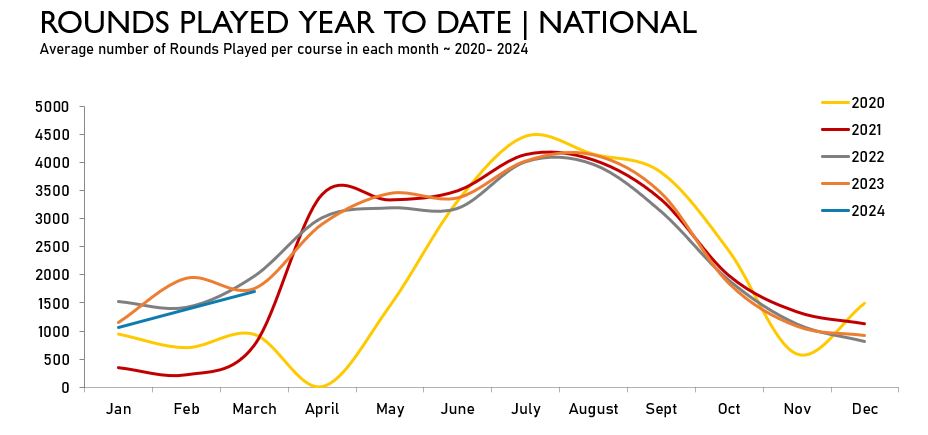
While the professional game remains unstable and unsettled, the first majors of the season testified to the strength of golf’s current undisputed dominant forces, Scottie Scheffler and Nelly Korda. With rounds played setting regular records in Great Britain over recent years, the split in the men’s professional game has not so far translated to waning interest in amateur participation. In fact, with initiatives like iGolf making initial and improving golfers’ experiences more rewarding and more social, conditions remain positive for golf to put up strong numbers through the rest of 2024. The caveat to that is that continuing high cost of living does appear to be impacting on leisure spend, albeit at lower levels than might have been predicted.
“A few things are important to bear in mind,” noted Richard Payne, joint managing director of Sporting Insights. First is the relative strength of 2023 and 2022 when looking at any downward shifts in performance. March for example remains ahead of 2019’s numbers. The second is that, while not insubstantial – in fact the appetite for winter golf reflects the hardiness of so many GB golfers – Q1 rounds are dwarfed by summer numbers that are 2-3 times higher on average than we see over Q1, so there is more than enough time for the year to end in growth. Finally, it’s worth pointing out that like any outdoor sport, fluctuations in participation happen. This is the first quarter to see a year on year drop in rounds played since Q1 last year. If declines in rounds played persist throughout the year, then there may be conversations that the industry needs to have, but it’s much too early to worry at this stage.”
For now, clubs across Great Britain will hope for fine weather and regular tee time bookings over the next six months.
Since 2000, Sporting Insights has tracked rounds played at commercial golf courses across mainland Great Britain. For more information or to purchase the full report, contact Richard Payne.



